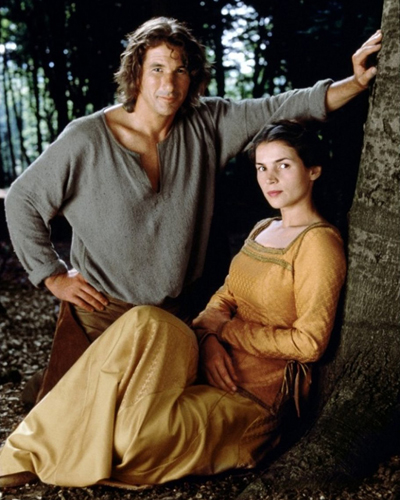This week we step away from the Renaissance into the world of Medieval Romance. The writing of a romance, a genre almost entirely consisting with arranging and juggling inherited courtly and popular motifs, seems worlds away from a modern conception of the ideal work of literature as original. And yet – the perpetuation of Arthurian-based television programs and movies seems to suggest we’re as susceptible to retellings as our medieval ancestors. G and I confirmed this by spending an inordinate amount of time on youtube watching (generally awful) trailers of King Arthur, Tristan + Isolde, Merlin, the Mists of Avalon, b, Camelot etc. The best – I tried to convince G – is obviously First Knight. It might be light on the adultery and magic, but it has cheese: tinny armour and swords, a misty Round Table montage, dark-haired Richard Gere crying, a leaf turned into a cup for forest rain-water.

I have, however, just become aware of Bresson’s Lancelot du Lac and Rohmer's Perceval le Gallois. To watch these would be an excellent repeating of the past, a re-engagement with English Romance as inherited from the French whim for Celtic lore.

I have, however, just become aware of Bresson’s Lancelot du Lac and Rohmer's Perceval le Gallois. To watch these would be an excellent repeating of the past, a re-engagement with English Romance as inherited from the French whim for Celtic lore.
Comments